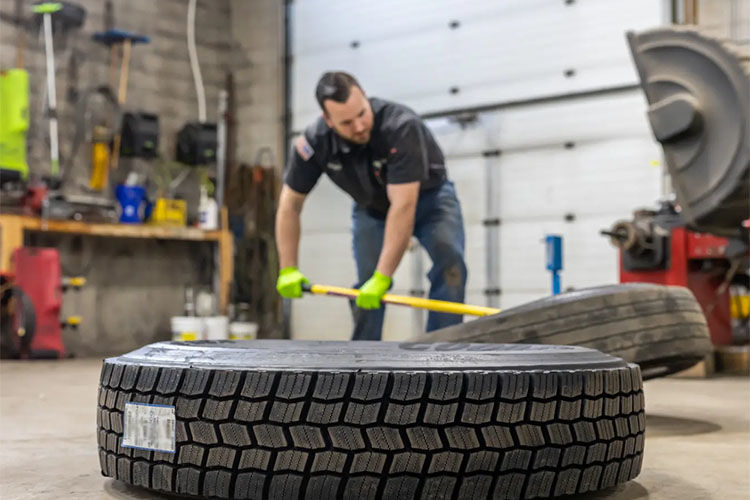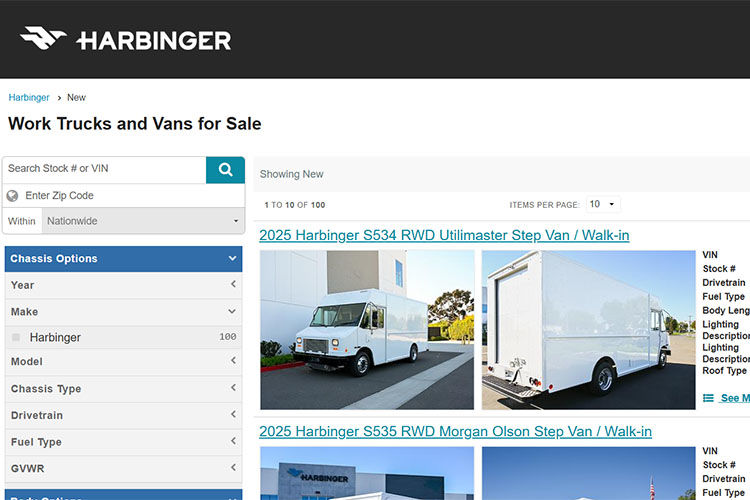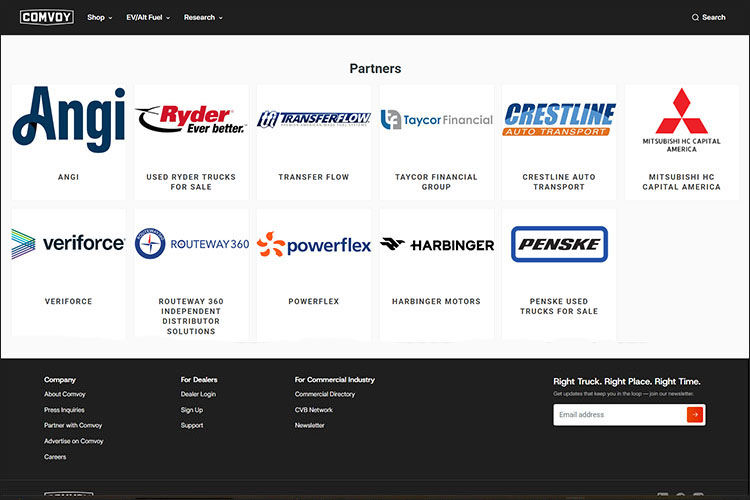Protecting Your Business with the Right Commercial Auto Insurance


Protecting Your Business with the Right Commercial Auto Insurance
Commercial vehicle insurance is a crucial safeguard for businesses that rely on transportation to deliver goods, serve clients, or manage operations. As Insurance Awareness Day reminds us, ensuring proper coverage is not just about compliance—it’s about protecting assets, minimizing financial risk, and maintaining business continuity.
Whether you manage a fleet of delivery trucks or use a single company vehicle, understanding key coverage details can help you avoid costly surprises. Below is an outline of essential considerations for optimizing your insurance plan and mitigating risks.
Key Coverage Considerations
Tools & Equipment Coverage
Many business owners store valuable tools and equipment in their vehicles. While standard commercial auto insurance typically covers damage to the vehicle itself, it may not provide protection for tools stored inside.
- Solution: Consider adding inland marine insurance, which covers movable business property—including tools and equipment—against theft, damage, or loss, even when transported between locations. Alternatively, some business property add-ons can provide protection for tools typically stored in company work trucks.
- Tip: Maintain a detailed inventory of tools and equipment to streamline claims in case of loss.
Personal Use of Commercial Vehicles
It’s common for employees or business owners to use company vehicles for personal errands. However, standard commercial policies may not cover personal use.
- Solution: Verify whether your policy allows incidental personal use and consider endorsements that cover non-business driving if it doesn’t.
- Tip: Clearly define and communicate vehicle usage policies to employees to reduce liability risks when company vehicles are used off the clock. It’s not just about the policy—it’s about communicating effectively so employees know the expectations, limitations, and liability risks associated with using company vehicles outside of business hours.
Coverage Gaps & Policy Exclusions
Insurance policies often exclude specific scenarios—such as unauthorized drivers, certain types of cargo transport, or off-duty use.
- Solution: Regularly review policy fine print with an insurance agent to ensure full coverage.
- Tip: Keep updated records on authorized drivers and intended vehicle usage to prevent unexpected claim denials.
Best Practices for Risk Mitigation
Driver Training & Safety Programs
Unsafe driving increases the likelihood of accidents and insurance claims. Businesses can reduce risk by prioritizing driver education.
- Solution: Implement defensive driving courses and utilize telematics to monitor driver behavior.
- Tip: Offer incentives for accident-free driving to encourage responsible behavior among employees.
Preventative Maintenance Strategies
Mechanical failures can lead to accidents and expensive insurance claims. A well-maintained fleet helps avoid unnecessary risks.
- Solution: Establish routine inspection schedules to detect and address vehicle issues early.
- Tip: Keep detailed maintenance logs to support claims and demonstrate proactive fleet management.
Policy Optimization & Coverage Review
Business needs evolve over time, and insurance policies should reflect these changes.
- Solution: Conduct annual insurance audits to adjust coverage according to new risks, vehicle upgrades, or operational changes.
- Tip: Work with an insurance provider to tailor policies for unique business risks, such as interstate travel or specialized vehicle modifications, like a rollback tow truck, which requires coverage considerations for both vehicle design and towing operations.
Financial Risk Reduction
While commercial vehicle insurance can be costly, businesses can take steps to balance affordability with comprehensive protection.
- Solution: Explore deductible options and bundle multiple business insurance policies to lower costs.
- Tip: Compare insurers to find the best combination of coverage and premiums for your specific needs.
Legal & Ethical Considerations
Regulatory Compliance
Businesses must adhere to federal and state regulations governing commercial vehicle insurance.
- Solution: Stay updated on state-specific requirements to avoid penalties. Businesses can reference sites such as Progressive Commercial for detailed insurance regulations by state.
- Tip: Regularly consult industry news and legal experts to ensure compliance with evolving regulations.
Liability in Case of Misuse or Illegal Activities
Improper vehicle use—such as transporting unauthorized passengers or engaging in illegal activities—can void coverage.
- Solution: Establish internal policies to regulate employee vehicle use.
- Tip: Educate employees on the legal and ethical use of company vehicles to prevent liability issues.
Real-World Scenarios
Business owners often overlook insurance gaps until a costly incident forces them to take action. Consider these two cases—one where proactive planning led to financial security, and another where a lack of foresight resulted in unexpected losses:
- The Proactive Business: A fleet operator implemented preventative maintenance and driver training programs, leading to lower accident rates and fewer claims. As a result, they secured reduced insurance premiums.
- The Unprepared Business: A contractor failed to check whether their tools were covered under their vehicle insurance. After a theft, they faced substantial financial losses because their policy did not include equipment protection.
These cases underscore the importance of business owners taking a proactive approach to understanding and optimizing their coverage.
Conclusion
Insurance Awareness Day is an excellent opportunity for businesses, especially those planning to start a towing business or expand into roadside services, to reassess their commercial vehicle policies. By addressing coverage gaps, implementing risk mitigation strategies, and staying informed about regulations, fleet managers and business owners can protect their operations and minimize financial exposure.
If you’re unsure whether your commercial vehicle policy meets your business needs, now is the time to consult an insurance professional and ensure your coverage is tailored for long-term success.
 About the author: Candy McCollum, Sr. Business Development Manager at Work Truck Solutions, has over 20 years of experience in the automotive industry, specializing in commercial fleet vehicles.
About the author: Candy McCollum, Sr. Business Development Manager at Work Truck Solutions, has over 20 years of experience in the automotive industry, specializing in commercial fleet vehicles.
She focuses on developing strategic partnerships and fostering connections among end-users, fleets, partners, dealerships, upfitters, and manufacturers. Candy is passionate about driving innovation and improving knowledge sharing within the work truck landscape; her contributions have been recognized across various platforms, helping to shape this dynamic ecosystem.
 Driving Business Growth Through Financial Flexibility: How You Buy Your Truck Matters
Driving Business Growth Through Financial Flexibility: How You Buy Your Truck Matters The Comvoy 2026 Event Calendar: We’ll See You There
The Comvoy 2026 Event Calendar: We’ll See You There Wheel Safety Is Your Business: How to Protect Your Fleet and Your Bottom Line
Wheel Safety Is Your Business: How to Protect Your Fleet and Your Bottom Line Harbinger Electric Step Vans and Cab Chassis Vehicles Now Available on Comvoy
Harbinger Electric Step Vans and Cab Chassis Vehicles Now Available on Comvoy Comvoy’s Partner Network: Your Shortcut to Smarter Fleet Solutions
Comvoy’s Partner Network: Your Shortcut to Smarter Fleet Solutions







